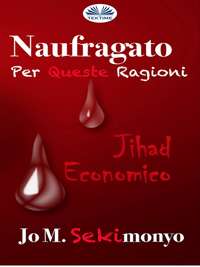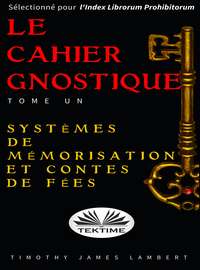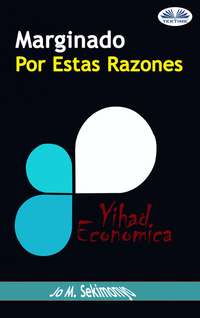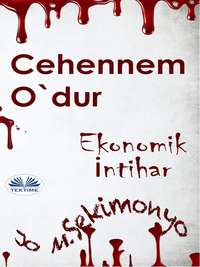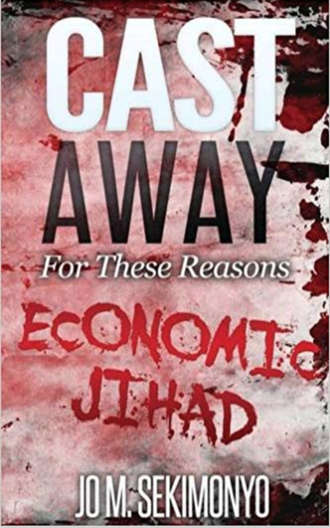
Полная версия
Cast Away : For These Reasons
It has been quite some time since I found myself entangled in a dilemma similar to Cole's. No doubt that the crusade I have embarked on has drawn me to experience life as I never thought I would. Let me assure you, the life of a hermit monk has not sounded appealing to me, yet. I have to say that the emotional expedition has broken my myopic life lenses, which forced me to observe my surroundings, relying on all of my senses, and upped my state of consciousness. After enlisting new priorities in my daily life, nowadays, I have a hard time sleeping all through the night. My mind fly miles away in the middle of dull seminars and conversations. When you have voices nagging in your head, pointing left and right, life becomes a wild roller coaster ride. I came to wonder when the devil had possessed me? I cannot afford to hire my own disheartened shrink, even less so Bruce Willis (I tried). In the goal of exorcising my demons, I hope that pinning down critical events in my ordinary life will help me trace the original trigger that led to my obsession with caring for the less fortunate. I cannot stop seeing poor people!
Tara's parents, Haitian immigrants, ran away from the hard knock life of New York City to raise their newly born child in The United States retirement epicenter in South Florida. From the time Tara and I met, she was boiling to reverse her parents' migration cycle and talked my ears off about the "Big Apple." When you add my wife's inducement strategy to the list of egotistic New Yorkers I had met in Florida, you start imagining the city as if it was the land of milk and honey; a nirvana where opportunities and excitement are waiting on every corner. It came as a huge disappointment to my wife that we did not move to her dream city, but rather into a quaint little town in Massachusetts. Ironically, I commuted routinely to New York City for school. The graduate program I matriculated into was situated smack dab in Manhattan, right in the mix of historic skyscrapers and not far from the around-the-clock and year-long tourist-infected Times Square. Learning from my experience, I have to caution folks out there dying to get a large bite of the "Big Apple," before moving up north, to scrutinize the madness diligently older and rich folks are running away from.
New York City is home to the world's boldest financial delinquents: the New York Stock Exchange, NASDAQ, and the most mismanaged international organization headquarters, the United Nations. New York has an estimated Gross Domestic Product higher than Saudi Arabia, and almost twice that of Switzerland. It has had a billionaire as a mayor, Michael Bloomberg, and larger than life unofficial multi-millionaire mayor of the blacks in the city, Sean John Combs aka Puff Daddy. Everything is glamorously portrayed in vivid 4k, except such things as the cityâs rodent problem and crime ridden bloodbaths in Brownsville, Brooklyn. The poor exist everywhere and the rich are hardly there, and hardly better off. They exist among the towers in self-delusion that living higher up the concrete structure in a gilded cage with fingerprint ID for entry makes them better off somehow. Why is the city not able to take care of the poor?
As I pushed amongst the crowds, the seemingly too busy to stay still, what I kept bumping into on every corner were the beleaguered faces of the poor. It is a constant draconian knot to my mind how a city awash in capital is not able to find a humane solution to the disparities of its inhabitants. Some walk in ragged shoes while other leap off the top of the skyscrapers in helicopters only to land at private airports and fly away in private jets to private islands to do private things if known would bring scorn and reproach upon their heads. Is this not poverty? Poverty of the mind, the soul, the flesh-eating disease from within that consumes them along with the physical diseases they keep contracting that only their wealth allows them to fight with antibiotics. If the trickle-down theory can ever be successful it must surely begin as dew, or rain, and start at the top would find minds less consumed with tower living, helicopters and private jets.
I find it torturous walking out of the New York City central station, dodging the overlooked mentally ill, and avoiding eye contact with those who are laying on the floor. This morose spectacle has turned me into a good priest passing the Eucharist or in my case, my lunch money. When winter came, I realized that there were fewer and fewer beggars around my usual crucifixion path. At last, I could get a decent meal without the burning guilty sentiment lodged in my gut. I was unable to silence my suspicions for long and questioned where the lava of homeless had gone that I had become accustomed to. In reality, no miracle had happened - just the weather. As ol'man winter makes its grim appearance, the homeless try to find warm shelters and, inevitably, have to retreat into invisibility.
In 2013, alarming news emerged of the spike in the number of homeless arriving at shelters, and due to housing's limited capacities, adults and children alike had to be turned away every night. What to say about the number of the United States veterans who are homeless? If the United States, currently ranked as the wealthiest nation on Earth, doesn't move Heaven and Earth to care for those who have answered the call to honorably serve the country and abandon noble beings who have put their life at risk to protect the nation, I can't think about anyone else it can show empathy to.
Not to pick on the United States alone the World Bank estimates that more than half of Mumbai residents live in slums that are otherwise by any standard unsafe and uninhabitable, and yet 11 million souls exist day to day1. The "Slumdog Millionaire" is how most people of the western world got a sense of life in Mumbai, and several scenes from the movie were recorded there. Mumbai is a city of contrasts, which is home to some of the country's wealthiest businessmen and Bollywood film stars. I cannot help but wonder if the archaic caste system and deep-rooted religious faith have made the common Indian susceptible to accept disparity in their society as a work of divine force: destiny.
I could not find any public outcry against the Indian space program's (I.S.R.O) budget that gradually boosted up to 1.3 billion dollars in 2013. The I.S.R.O. budget figures triggered countries such as India's former colonial power, the United Kingdom, and one of the nation's best buddies, the United States, to cut aid fund to India. The amount is evidently small compared to the I.S.R.O budget, but it was a huge hit taken by diverse programs that provide needed services to an estimated 421 million of poor Indians. This number is higher than in the twenty-six poorest African nations. What was India's response to the aid cut? "We do not really need the aid," said Palaniappan Chidambaram, India's finance minister at the time.
In November 2013, my Indian-American friends celebrated when India's space program confirmed that the Mars Orbiter had debuted the planned ten-month journey. The Indian Mars probe has raised some of my most profound suspicions. It was orbiting the Earth for some time. I imagine that Indian scientists got depressed looking at the Indian slums and decided to turn their telescopes away. Is the mission's real goal to find a new hide-out for the Indian elite or a dump/final solution for the poor inhabiting places like the slums of Mumbai? If it happens to be the latter, the few clauses on the ratified agreement between the Federal Republic of Nigeria and India about space programs regarding slums scattered around Abuja should be fascinating!
Now try to Google the most expensive house in the world's history. Surprisingly, it is not located in Manhattan or anywhere in Paris, but it is in Mumbai, India, and is valued at more than one billion USD! The twenty-seven-story skyscraper has six underground parking levels, one level dedicated to a health center and requires about six hundred staff for its maintenance. This gargantuan residence is home to the Indian billionaire, Mukesh Ambani, his wife, his two sons and one daughter. It does not pain me as much that in a nation where many children go hungry and live in slums as much as he chose to spend a billion dollars building his residence on land owned previously by an orphanage. The land was allocated to educate underprivileged children. I guess that he wanted to have a beautiful view of the city, and its slums.
Talking about a beautiful view, the Gulf of Florida has some of the most immaculate beaches on the planet. Anyone who desires an urban lifestyle and quick access to splendid beaches, the city of Tampa is the right place to live, because of its proximity to the coastal city of Saint Petersburg. Now, any tourist is going to have a lovely time wandering around under the caressing sun, tasting some authentically fattening American gourmet food at the center of the town and stopping by the beach for ice cream.
Once the sun goes down, it is advisable for any caring soul to avoid venturing into the vicinity of the city center. I have found myself downtown late at night, waiting for the Greyhound bus to take me back to Tampa. I swear criminality is not what people have to worry about. The upsurge of homeless laying their boxes down, trying to find shelter around the imposing local Catholic Church building and the central park is heartbreaking. Adding to that humiliation, the homeless are constantly being harassed by the police on patrol, enforcing what I call a zero-tolerance of the poor decree passed by the local council. As a tactic to get rid of the poor, once arrested and released, they are given a Greyhound ticket out of Saint Petersburg to any destination of their choice, which is usually Tampa. I do think it is one of the most creative and diabolic measures taken with the goal of safeguarding the city's quixotic image.
When somebody says quixotic image, for some reason my mind centers on the city of Burma, officially the Republic of the Union of Myanmar. My enchanting depiction was, for a long time, the result of a leaked video of the General Than Shwe's2 daughter wedding in 2006. There were strings of diamonds and tons of champagne bottles on display. It was estimated that she received tens of millions of dollars' worth of gifts, including luxury cars and houses. I can remember being so envious of the groom, watching him pouring champagne over a cascade of glasses and helping his bride slice into a huge wedding cake. At the news of Aung San Suu Kyi being released from house arrest in November 2010, I took a second look at the video and did some research. In the video, the smiling guests, wrapped in the finest clothing and expensive jewels, were all part of a brutal and sanguinary military leadership who had an ironclad grip on the country. This opulent party was happening while Burma's level of poverty and military repression continued to rise.
The military junta has since then gone through a strategic renovation. The surgical changes are noticeable; these tigers have adopted formal civilian outfits. Their sincerity is questionable. The ruling elite members are still the same. I do not see them relinquishing control over the Burmese military forces, which is unmistakably the source of their control over the country and its vast resources. So far, the offensive charm appears to be working. Yangon International Airport is busy yet again rolling out a red carpet on the step of world power brokers and their squads of financial crooks' jets. No doubt in my mind that parties will go on for some time again, although in secret.
The event got me wondering, what has happened to the most exhilarating party in the United States that was no secret by any means? In 2003, getting "fresh off of the boat" as many of my American compadres would label the Caribbean and African newcomer like myself, I came across a brochure of "Mardi Gras" events in New Orleans, Louisiana, jam-packed with images of young folks partying and with delightful praises of bayou gastronomy. A couple of friends and I could not wait to cash in a bunch of coupons stacked in the booklet. Needless to say, we drove down to the "Big Easy" as fast and drunk as we could. Miraculously, we did not end up on some chain-gang in Mississippi. The food and the hospitality on Bourbon Street were outstanding. Only few party musketeers could boast that every one of their notorious Bourbon Street rituals was a triumph. Let's just say that each time we left the hotel with hundreds of beads, following the festivities' sacrosanct tradition, we stumbled back to our room with empty hands... Wink, wink!
On our way back to Florida, with our minds still floating up in the sky, we missed the ramp to the Hale Boggs Bridge over the Mississippi River. Anyone who has been to New Orleans knows that the bridge is the only way of getting out of the city. There was no need to panic until we realized why the hotel concierge instructions were to avoid, at any cost, venturing outside the touristic parameter, which is roughly around the French Quarter. Oh, Lord! For the first time on our sojourn in New Orleans, the décor was of concern. We all sobered up fast. It is not far-fetched to say, if the police had tried to pull us over, they would have had to follow us back to Bourbon Street. We were not about to make any stop in the middle of that jungle.
To get an idea of our ragtag group, we were raised watching the black family in the Cosby show series, scenes of New York City in Eddie Murphy's comedy hit "Coming to America" was too surreal to be true for us. In other words, we were from predominantly affluent families that got more than a proper share of wealth in the "Ã l'Africaine" Capitalism system. Even though we had a considerable number of black American acquaintances back in Tallahassee, Florida, which is a classic college town and a serene state capital, those Negroes in N'awlins and the surrounding projects scared the hell out of all of us! We should have known that something was fishy about this city. New Orleans produced one of the most prolific rap groups that we loved at the time, and the "Hot Boyz" is one of them. Their creative rap prose, raw style, and catchphrases cannot naturally come from a place of joy and kumbaya; instead, it is a sanctuary of pain and desperation. If that red flag was not visible enough, the group's initial low budget music videos gave a tour of their world, a cornucopia of poor dirt-ass people in front of poorly maintained public housing blocks.
Sadly, these days, some opt to ignore or chose to forget the fact that way before the devastating hurricane Katrina3 swept through the city, New Orleans had some of the shittiest places in the United States comparable to parts of third world countries I have traveled to. As my friends and I came to find out, those shameful pockets of the "Big Easy" were superbly tucked away, out of the view of the drunken college students and other tourists. Hurricane Katrina only flushed out the city's dirty secret, and the entire United States pretended to be surprised. Really, what else do you expect when the city sanitary sewers overflow? And now that the chocolate city, as it was called by the New Orleans Mayor Ray Nagin (sentenced ten years in prison for bribery, money laundering, and other corruption), is rebuilding, it probably is praying for its problems to never come back, wishing it could declare a section of its former persona non-grata residents.
"Persona non-grata" might not be stated in the city of New Orleans' Christmas wish list; but it has been Teodoro Nguema Obiang, the son of Equatorial Guinea President, status in France and most civilized nations. France got exasperated by the Negro Prince's opulence, and in 2012, it was reported that the French police suddenly decided to act on a past lawsuit brought by different activist organizations and took away a couple of Obiang Jr.'s toys. The subsequent viewing of all the baubles pictured in French magazines surpassed my imagined folie de grandeur, which included eleven luxury cars (two Bugatti Veyrons, a Maybach, an Aston Martin, a Ferrari Enzo, a Ferrari 599 GTO, a Rolls-Royce Phantom, and a Maserati MC12), some bottles of Château Pétrus (among the world's most expensive wines), and a 3.7 million dollars clock.
Not one to be outdone by the French, the Americans attempted to put a bigger dent in Obiang Jr.'s fortune. The public got blitzed with the news that the United States Justice Department filed a 70 million dollars forfeiture action against Obiang Jr. And voilà , another list that included a Gulfstream jet, Michael Jackson's infamous gloves, and a villa in Malibu, California. Wait a minute! The kid was still allowed to parade around vast amounts of money in the United States after the scandal that forced the Riggs Bank to shut down? Somehow, the United States Justice Department never troubled the bank's largest single depositor at the time, with over 700 million dollars. What is there to make of all of this juicy story? By no stretch of the imagination, the very young Teodoro Nguema Obiang has presumably amassed all of that uncovered fortune while earning a salary of less than 100,000 dollars per year as Equatorial Guinea's minister of Agriculture and Forestry.
What can be said about Equatorial Guinea to put everything in perspective? The country is among the most repressed countries in West Africa, and if we take the proportion of its people living on less than a dollar a day. This nation of just 700,000 people is at the same time poverty-stricken and oil-rich, a contrast of epic proportions. There are pictures on social media sites of glassy high rises and presidential mansions next to rusted shacks. As one visits the country's capital Malabo, there are sightings of people riding in flashy Mercedes Benzes through the slums and trying to miss the city's zillions of potholes and of the country's Chief of Police, who is related to the president, bragging that his uniforms are tailored by none other than the French celebrated designer - Yves Saint Laurent. From the fancy room's window of the brand-new hotel he stayed in, he could see families crammed in small and tin-roofed shacks.
And while I was digging out more facts, like one out five children dies before reaching the age of five years old and less than fifty percent of them have access to clean drinkable water, I was stunned to learn that the Commissioner of Police of a tiny country located right in the center of Mandela's Rainbow nation, was presenting, on behalf of his greedy and perverted absolute monarch, a sincere apology for two million Euros stolen, strangely in a briefcase, during a party in Obiang Jr.'s villa in Swaziland. If anyone is wondering, what about Teodoro Nguema Obiang's punishment for exhibiting such extravagance and tarnishing Equatorial Guinea's image? Well, let's just say that it fits with a son of one of Africa's longest-ruling dictators, a shrinking elite group. His father has since made him Second Vice President of Equatorial Guinea. The highly regarded and guarded position, shielding him from any eventual international prosecution.
"I am for doing good to the poor, but I differ in opinion about the means. I think the best way of doing good to the poor is not making them easy in poverty, but leading or driving them out of it."â Benjamin Franklin
Noah was a good man, but he is to blame for spoiling my childhood's unique way of escaping abuses at home. After a neighboring kid's dramatic incident in our home's backyard, I got terrified to play Rambo camping out by myself. I have long suspected that Noah had something to do with my tactic fiasco; the detail of his exploit brought up irrefutable evidence of his guilt. I have read different versions of Noah's Ark story, and it all boiled down to the same specifics: Noah saved himself, his family, and a remnant of all the world's animals when God decided to flood the world and destroy it, because of humanity's evil deeds. As a child, I found this so reprehensible that the unsupervised Noah chose among other animals, to also allow on board vultures, rats, crocodiles, and particularly the biblical source of Adam and Eve's demise and my childhood summer's long caging - I am talking about snakes.
Parallel to Noah's Ark story, Mandela was a good man. He ruined something so dear to me. I have dreamed of spending my golden age in the wealthiest and most inspiring African country, South Africa or "SA," a plausible way of enjoying my retirement amongst prosperous black Africans. In the past couple of years, I could not quite figure out Mandela's responsibility in my fading dream. Ultimately when I set aside the fact that he spent 27 years in a labor camp for his part in the struggle against Apartheid and then critically assessed his one term as President of South Africa, it got crystal clear.
I consider myself a member of the tiny bold group navigating through uncharted territories, and whose voices should have preferably been louder before "Madiba's" death. Do we dare denounce that the "compromised negotiations perpetuated South Africa's social, commerce and trade, and political woes?" There is no doubt in my mind that Mandela got a great deal for himself, ANC & Co., and the small affluent white society when F.W. de Klerk who, in my view, bears some resemblance to God, and is a white old man and an undertone racist, was pressed to bring an end to Apartheid by white South African middle class and big businesses burgeoning dissatisfactions in the 1990s.
I have succumbed to my grandparents' mantra that people should be judged solely by their actions; two real facts put into question Mandela's strength of character. The unchecked "Madiba" went too far to accommodate the Apartheid establishment by striking a deal with racist judges, some of the worst human rights violators, the Afrikaner squads of kidnappers and murderers and exclusively the ones who sponsored the entire cruel Apartheid system and who have become the new safeguard of the rainbow elite. I am pointing at the mining and financial corporations. And what's to say about a man who in an interview with the Australian reporter, John Pilger, expressed a total disregard toward Indonesia's three decades of brutal dictatorship and other people struggling alike, who went on to justify the rewarding in 1997 of the Butcher of Jakarta, General Suharto, with the Order of Good Hope, which is South Africa's highest honor that could be bestowed on a foreigner?
I cannot reconcile the fact that The African National Congress (ANC), South Africa's national liberation movement and their allies have won all of the South African presidential elections since the end of the Apartheid. The de facto economic Apartheid remains intact. South African blacks remain horrifically poor in absolute and relative terms. To my eyes, the ANC has abused the trust of black people who are still cramped in slums like Dimbaza and Alexandria, and these violent townships are beginning to bear the brunt of widespread frustration. In contrast, there is plenty of evidence that the ANC has been good for the whites. In exchange for including a few ANC black operatives in their glamorous closed circle (a scheme used to funnel money back into affluent party members' pockets), whites in SA have been allowed to enjoy discreetly behind massive barricades the wealth extracted and amassed from the inhumane exploitation of blacks in SA during the Apartheid. Another way to say it is when the South African Apartheid was choked, their leaders realized that all they had to do was to bring black leaders to the business of distributing wealth and welfare, and the explosive greed disintegrated the ability of Negros and Indians to collaborate across neighborhoods and ghettos.
I once asked myself how Mandela & Co. planned to lead or drive black South Africans out of poverty? One would find that the ANC set an excellent map plan to that end, stating unmistakably in a segment of the Party's Freedom Charter:
"The national wealth of our country, the heritage of South Africans, shall be restored to the people; the mineral wealth beneath the soil, the banks and monopoly industry shall be transferred to the ownership of the people as a whole; all other industry and trade shall be controlled to assist the wellbeing of the people..."
This section of the ANC Freedom Charter is inconsistent with concessions that they made such as the late 1992 "sunset clauses." It paved the way for a Government of National Unity (dictators' favorite method to blend wolves and lambs and to diffuse popular demand for a change) and for the absurd job guarantees that protect all Apartheid-era civil servants.



